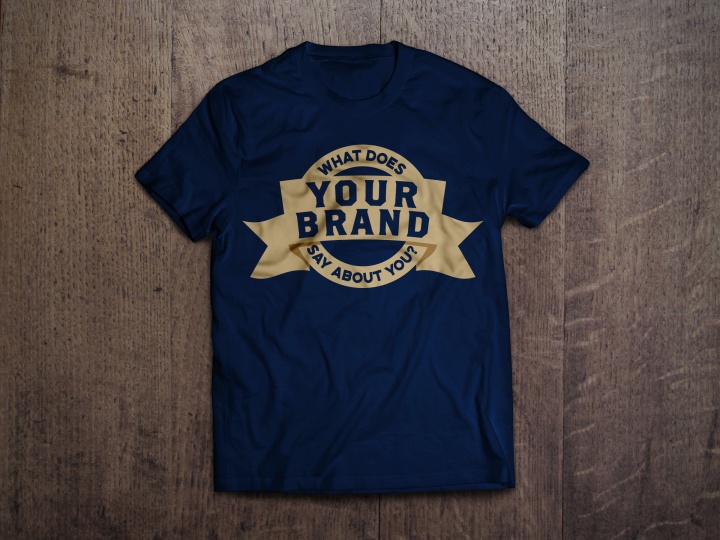What Does Your Brand Say About You?

Let’s play a game…
I’ll start with a famous company, and based on that company, see if you can give me the advertising slogan or jingle that accompanies it.
- McDonald’s
- Subway
- Nike
- Apple
- M&M’s
How did you do? Some of you may have gotten all five, but I would venture a guess that even if you were unable to get all five, you got at least one or two. For those like me, who absolutely cannot continue reading this article until you know the answers, they are on the next page.
Brand recognition
These slogans are successful because they have etched themselves into the collective memory of society with a short easy-to-remember phrase, accompanied by music that is catchy and easy to recall.
It used to be that a catchy jingle or slogan such as these was needed to identify and sell products, but in today’s increasingly visual world of marketing, often the quick visual of an easily recognized logo or even the colors of that brand are enough to identify a company. There is a term for this in the marketing world: “brand recognition.” If you want a good pair of shoes that will increase your performance, you turn to Nike. If you want a refreshing drink on a hot summer day, you turn to Coca-Cola, and if you want an aesthetically beautiful mobile device that is hip and trendy, you get the new iPhone. You don’t even need to see a commercial necessarily. The sight of the Nike Swoosh, Coca-Cola’s red/white cursive lettering, and the partially eaten fruit logo of Apple are immediately identifiable and are synonymous with quality—or so the marketing and advertising of these brands would have you believe.
Whether the claims are true or not, that’s what the brand’s marketing is showing you, and after enough exposure, you as a consumer will begin to believe what you are shown and told about the product being advertised. As a result of this, slogans, logos and brand colors are fiercely protected by copyright laws to avoid infringing upon the brand and tarnishing it.
According to entrepreneur Chris Ducker, “Your brand is what people say about you when you’re not around.” As a result, establishing and ultimately protecting public perception of the brand are everything to the company that owns it.
What does your brand say about you?
Most teens and young adults these days have a number of social media platforms. These platforms offer a unique opportunity that people of my generation didn’t have. Each person now has a platform for written word, social commentary, pictures and much more.
Have you ever considered these statements, photos and social media interactions as a form of product branding? If you as a person are the product, what are your images, words, shares and likes saying about you?
The name Justine Sacco probably doesn’t ring a bell, but in 2015, Justine had a great job at an Internet public relations firm, and was traveling the world for her company. Making a series of snarky tweets as her travels progressed, she boarded a plane for South Africa and prior to getting on the plane made one last snarky and, frankly, racially insensitive tweet. She thought it only went out to her 170 followers.
However, she learned when she landed in Cape Town that it had been discovered and retweeted numerous times and had taken on a life of its own. She was later fired by her employer for the blemish she had put on the company. As a result of her carelessness, she lost out on economic opportunities, future employment and social opportunities.
She is not the only one.
She is one of many who had ill effects from something that they liked or posted on Facebook, Twitter, Instagram or Snapchat that blew up in their face.
People see our online presence and make judgments based upon what they see. Fair or unfair, it’s reality. What we post, like and share can positively or negatively impact our “brand.”
Positive or negative?
If we are known to others as Christians, then preserving and maintaining our brand is even more crucial, because negative impacts to the brand reflect negatively on God Himself.
As Christians, we are admonished in John 13:35 to have love for one another, neighbors and God. We are to be known for this love that we show. We are instructed to love our enemies (Matthew 5:44) even if they treat us poorly. Ephesians 4:22-32 gives us an entire laundry list of things that should be put away from us. Within that list are corrupt speech, bitterness, anger and slander.
We are admonished to be modest in our attire (1 Timothy 2:9), humble (James 4:6), always truthful with one another (Colossians 3:9-10), put away coarse joking and obscenity (Ephesians 5:4) and think on the things that are noble, pure, of a good name and worthy of virtue (Philippians 4:8).
Perhaps it is worth thinking twice about that selfie that is pushing the boundaries of appropriateness. Maybe it is worth not sharing the story you cannot prove is true one way or the other; or avoiding altogether the off-color, insensitive joke or angry political rant.
Just like brand recognition, people will begin to believe what they see repeatedly—whether it is true of the brand or not.
The posts, shares, likes and interactions that we have on social media say a lot about our brand. Your brand truly is what people say about you when you’re not around. Think back over your posts, likes and shares for the past few months. Are you sending a message to the world that you didn’t intend? Does your timeline present an accurate representation of who you really are? Or is it telling a different story?
Our activity online can have positive or negative effects on our brand.

